DCB Students Help Visually Impaired Teens Gain Financial Literacy
Last October, Year 12 Economics students Jason Z, Gary Ka I, Jayden N, Tim Z, and Ethan W took part in China Thinks Big (CTB), China’s premier research and innovation competition for high schoolers in China. Over 10,000 participants and a thousand teams take part in this challenge that drives students to use their intellectual creativity to tackle important societal issues. Some past projects have been impactful as well, influencing local policy, garnering wide media coverage, and even becoming case studies in some Chinese college entrance exams, and even being adopted as bills in the provincial People’s Congress.
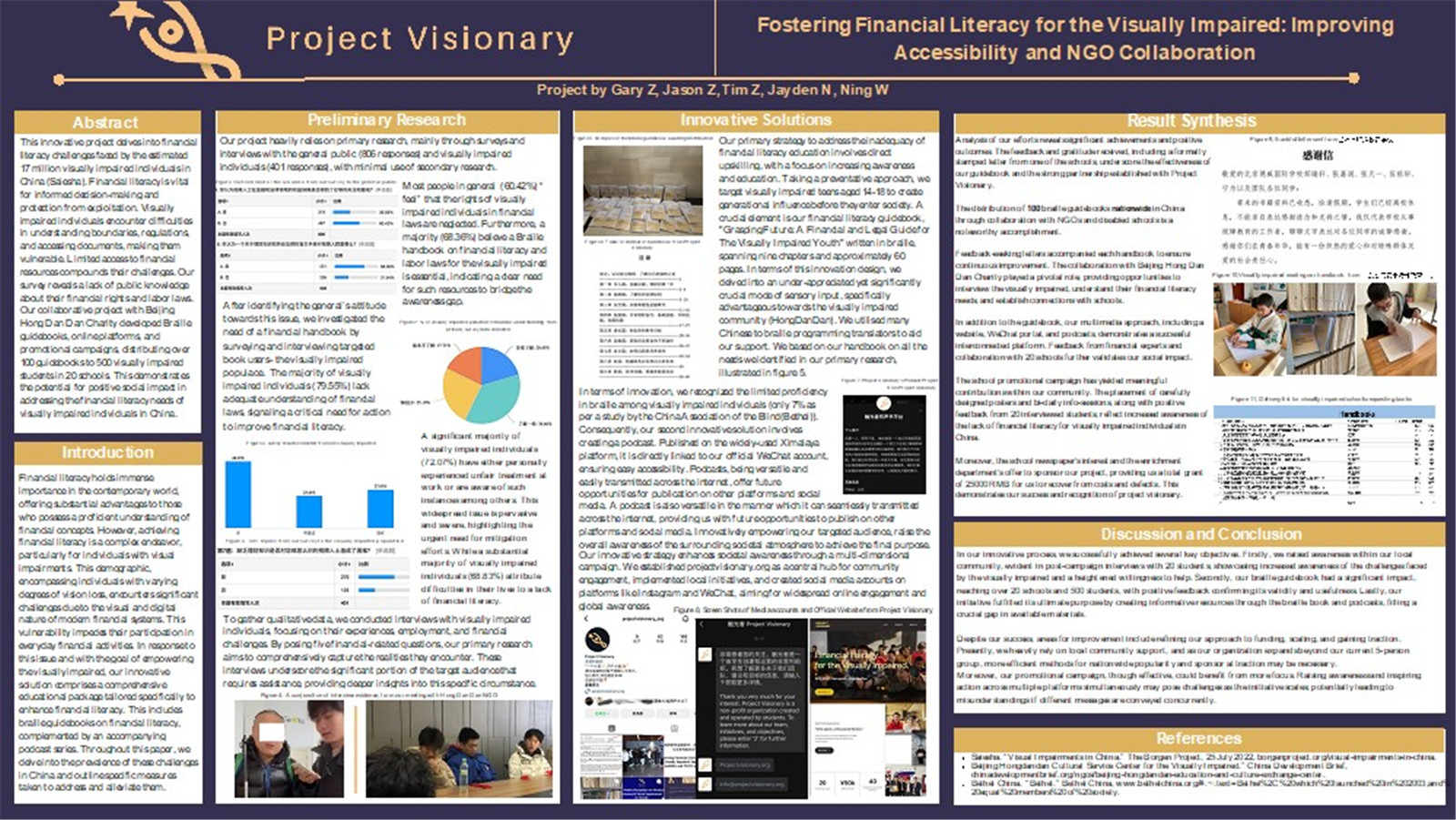
The team initially planned to create a project providing assistance to migrant workers. However, after consulting with Beijing Hong DanDan, an NGO that works closely with the community, they decided to shift their focus to an often-overlooked group - high school students with visual impairments. These students struggle to access financial literacy literature due to limited resources and the lack of educational materials specifically catering to visually impaired individuals.
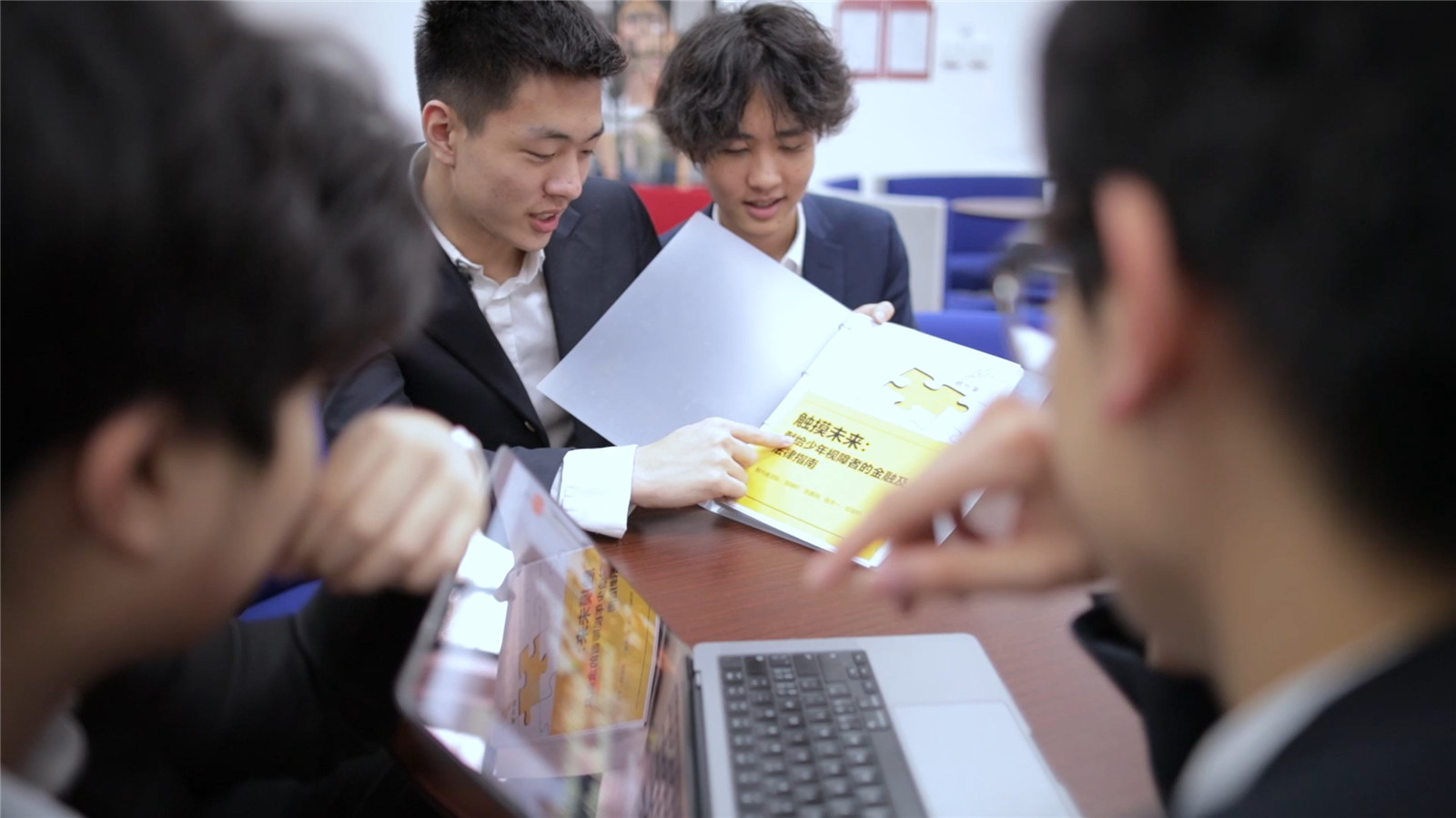
Financial literacy is vital for informed decision-making, and yet over 17 million visually impaired individuals across China do not have the luxury of accessing this information, which can be especially problematic for teenagers about to enter society, unprepared for the financial challenges ahead.
And thus Project Visionary was formed. As was shared by one member, “Project Visionary was created as our submission for China Thinks Big. However, our experiences helping the visually impaired develop greater financial literacy motivated us to continue this project outside of the competition. We've made significant progress as of now, and are looking to continue creating impact.”
Is there really a need?
Their research showed that there is. In preparation for their comprehensive guidebook tailored to the unique needs of visually impaired teens, the Project Visionary team partnered with local charity Beijing Hongdandan and conducted surveys and interviews with over 800 members of the general public:
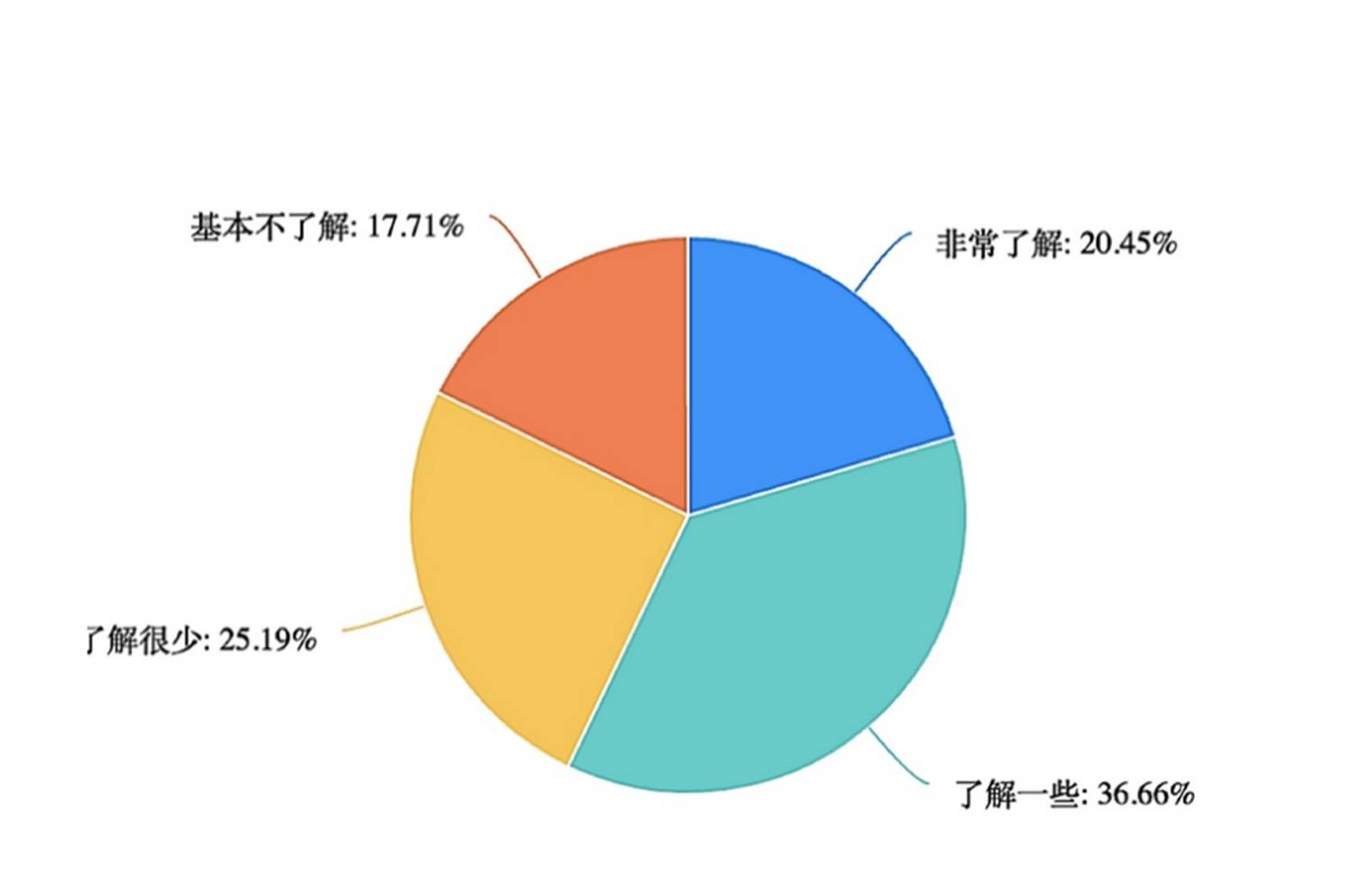
- Over 60% of the general public that they interviewed agreed that the rights of visually impaired individuals in financial laws were indeed a neglected gap that needed to be filled
- 70% agreed that a Braille handbook on financial literacy and labour laws for the visually impaired was essential.
Meanwhile, interviews with over 400 visually impaired individuals showed that:
- nearly 80% lacked an adequate understanding of financial laws, while
- over 72% shared the unfair treatment that they have received in their places of employment due to a lack of understanding of what their rights are.
Grasping Future: A Financial and Legal Guide for The Visually Impaired Youth
Project Visionary’s goal is simple: to help students like themselves have basic financial literacy before they enter society.
Navigating the educational landscape as a visually impaired individual poses unique challenges in China. Unlike traditional schooling, which emphasises exam-oriented learning, visually impaired students often attend vocational schools that prioritise practical skills. As another member of Project Visionary observed, "Many blind children here don't have access to higher education. They attend vocational schools that focus on teaching specific skills."
The team’s first step was to produce the braille-lettered book Grasping Future: A Financial and Legal Guide for The Visually Impaired Youth. Spanning nine chapters long and approximately 60 pages, the team utilised several Chinese-to-braille programming translators and based the content on the needs they identified in their primary research and advice they received from Beijing Hongdandan. “The book was approved by Beijing Hongdandan and teaches basic skills such as budgeting, differentiating needs and wants, financial goals, how to get microloans in case of an emergency, and more,” added one member. “It’s all very basic skills but crucial for teens transitioning into society.”
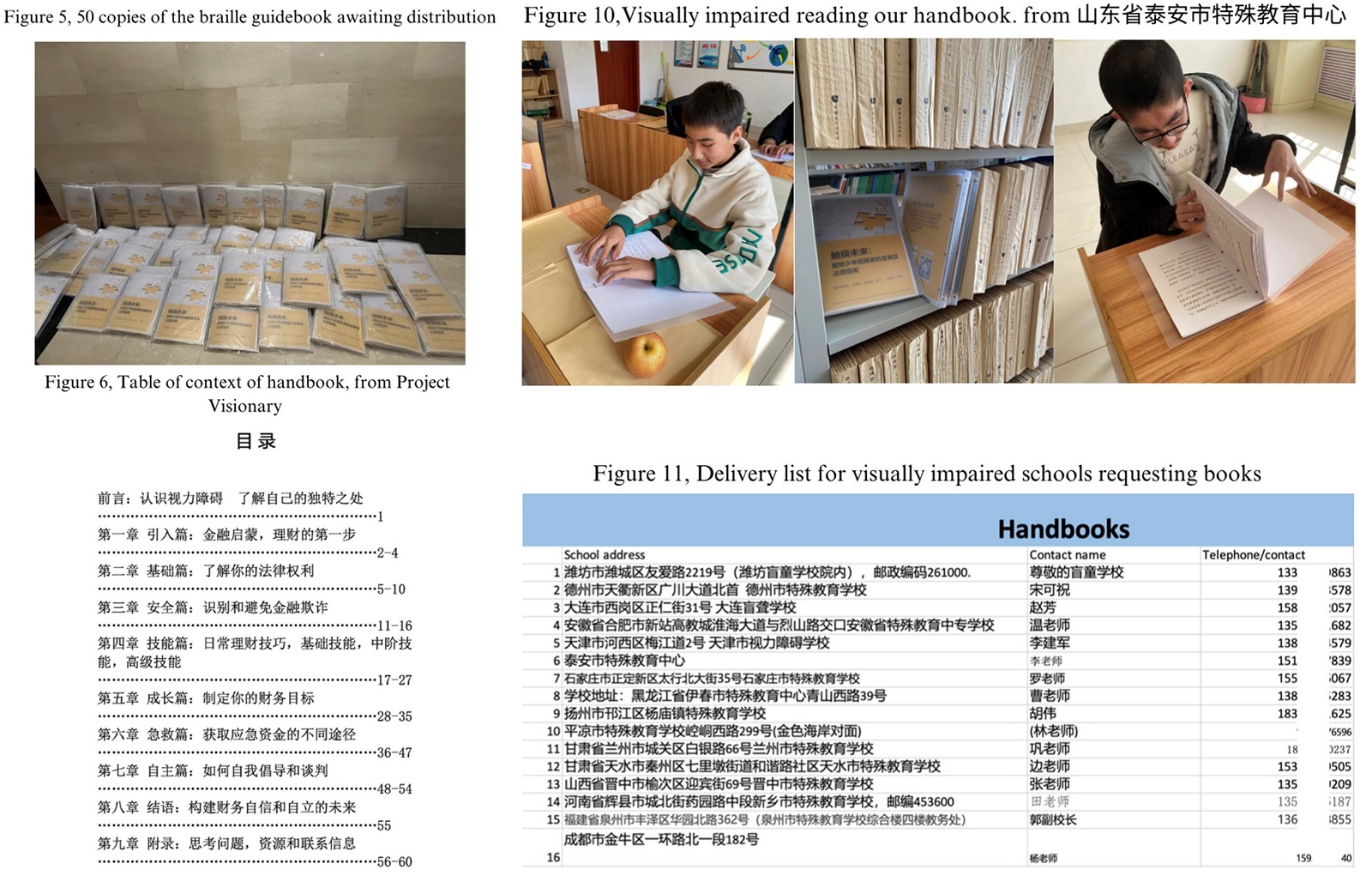
But then the students realised that a book wasn’t enough.
A study reported by Bethel China, a non-profit orphanage for visually impaired orphans, that was done by the China Association of the Blind, shared that only 7% of visually impaired individuals have even limited proficiency in braille. So the students decided to try alternatives to their new book.
And so their podcast was born, launched on the locally popular Ximalaya platform that is also accessible from their official WeChat account. The group also established projectvisionary.org as a central hub for community engagement, announcements and implementations of local initiatives. They also created social media accounts on platforms like Instagram and WeChat to increase awareness.
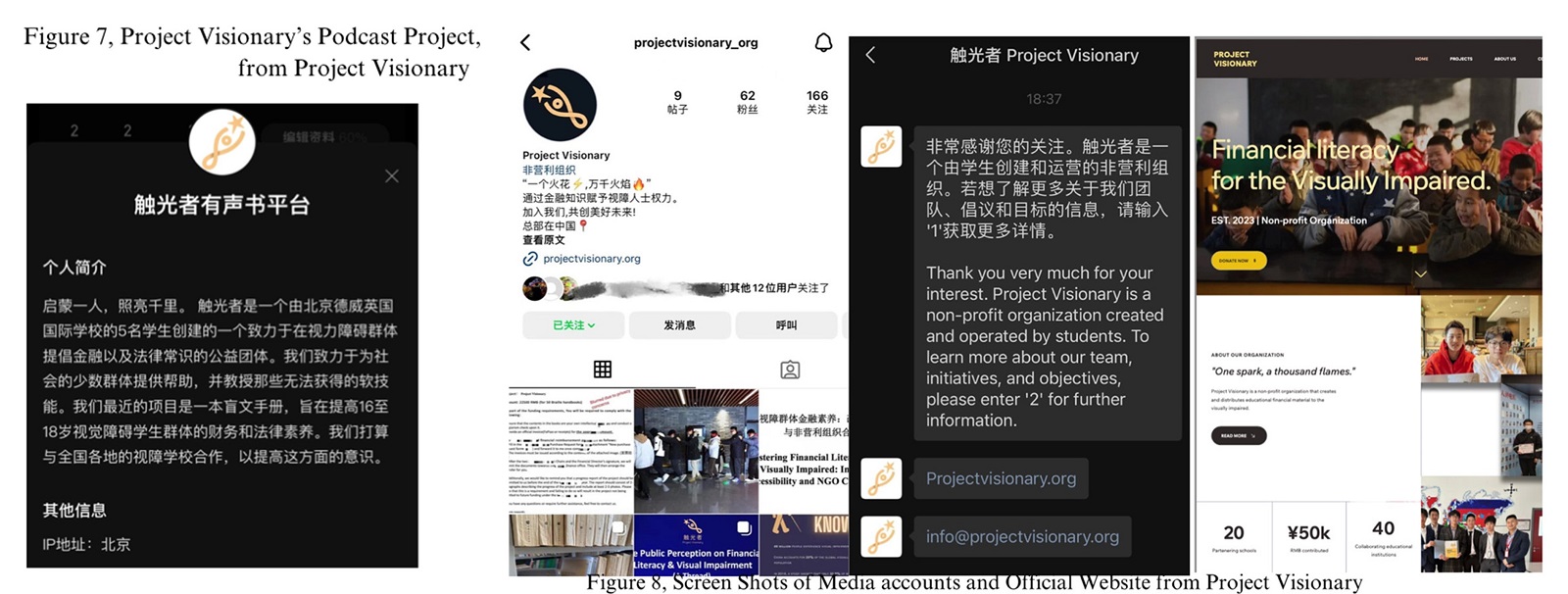
Response so far
As of this writing, recipient schools have expressed their gratitude, underscoring the effectiveness of the guidebook. In collaboration with local NGOs and local schools for students with disabilities, 100 copies have been distributed nationwide, which included feedback requests and feedback from financial experts and the 20 schools the team collaborated with further validated their social impact. There has also been an increased awareness around the Dulwich College Beijing campus thanks to posters and activities the team has organised, which has also drawn offers of help.
Looking ahead, Project Visionary aims to expand its impact by distributing its guidebook to schools and organisations across China. Additionally, they are exploring partnerships with organizations like Be My Eyes, a global platform connecting visually impaired individuals with sighted volunteers through live video calls.
Project Visionary embodies the power of youth-driven initiatives to effect positive change. With passion, perseverance, and a commitment to inclusivity, these young leaders are transforming lives and creating a more equitable future for all.
Congratulations Project Visionary Team – SENIA World Changer Awardees! Read more here.








